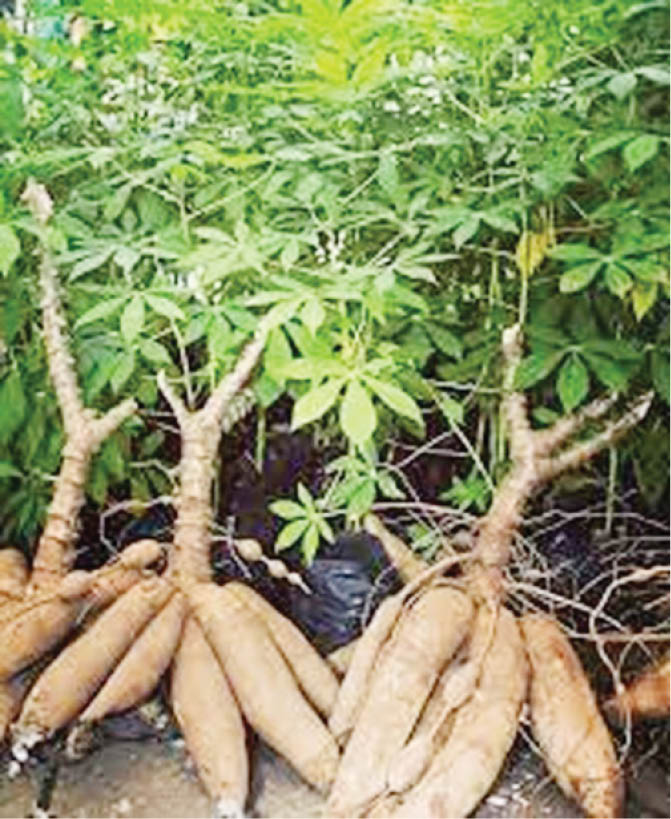Efforts to develop the cassava seed system will help Nigeria to transform the crop and meet the growing demand of about N10 billion from growers, experts from the International Institute of Tropical Agriculture (IITA), National Agricultural Seed Council (NASC) and the National Root Crops Research Institute (NRCRI) have said.
In 2020, the Central Bank of Nigeria-midwifed programme to develop cassava seed growers on 100,000 hectares across the country created a huge demand for improved and disease-free planting materials that surpassed supply.
“Last year, the demand for certified cassava stems from growers was estimated at N10billion. Unfortunately, this opportunity was not fully taken by farmers as it was difficult to get certified stems of improved varieties,” Dr Alfred Dixon, the IITA Director for Development and Delivery, who led a delegation of experts, said during a courtesy visit to the Minister of Agriculture and Rural Development (FMARD), Alhaji Muhammad Sabo Nanono in Abuja recently.
The courtesy visit, which was coordinated in the framework of the IITA-managed project, known as the Building an Economically Sustainable Integrated Cassava Seed System, phase 2, (BASICS-II); provided opportunity for experts to draw attention of high-level decision makers to the untapped opportunity that cassava seed system offers in terms of food security, jobs and income generation.
Dr Dixon noted that the IITA, through the BASICS-II project, was already working with partners and farmers to tap the opportunity, explaining that the project was creating a formal seed system for cassava that links breeder seeds with foundation seed producers to entrepreneurs.
“The commercial seed producers will thereafter sell to cassava root producers. And cassava root producers will subsequently process into various end products or sell surplus roots to processing industries in the country. In this fashion, we will be creating jobs and income generation opportunities for young people that will serve as seed entrepreneurs and modern producers of cassava. Furthermore, the use of certified seeds will increase the national productivity of cassava,” he added.
Dixon made a strong case for greater collaboration between the FMARD and IITA and national partners – NASC and NRCRI, and called on the government to scale out the BASICS-II project model to other cassava growing states, as currently, the project is working in Benue, Kogi, Abia, Akwa Ibom, Oyo and Delta states.
The executive director, NRCRI, Professor Ukpabi Joseph Ukpabi, said the collaboration with the IITA had been beneficial to the country, adding that the partnership made Nigeria the largest producer of cassava.
Similarly, the director-general, NASC, Dr Philip Ojo, said the collaboration with the IITA, especially through the BASICS-II project, was helping in the certification of seeds, making Nigeria a reference point to other countries for quality seed certification and regulation.
In his response, Alhaji Nanono pledged the commitment of the government to support the cassava seeds sector owing to its strategic importance as a food security crop and income earner.
He called for the involvement of the private sector in the cassava value chain, adding that it would create the much needed jobs and wealth to transform the economy.
“As a ministry, we want to support the private sector for sustainability,” Alhaji Nanono stressed.
According to him, the ministry will continue to create appropriate policy measures for successful production and distribution of cassava produce to ensure availability of food and raw materials for industries.

 Join Daily Trust WhatsApp Community For Quick Access To News and Happenings Around You.
Join Daily Trust WhatsApp Community For Quick Access To News and Happenings Around You.


